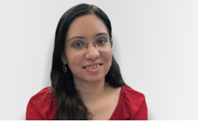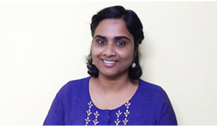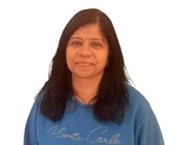
Last date for nomination: July 24, 2025
Course Objective
A well-functioning Board is crucial to the long-term health and impact of any nonprofit This workshop is designed to equip nonprofit leaders with the tools and frameworks needed to build, strengthen and sustain effective Boards that are aligned with their organization's mission and stage of growth Through interactive discussions, case examples, and hands-on activities, participants will explore the Board's strategic role They will also be able to develop a practical roadmap for improving Board effectiveness in their contexts.
Course Outcomes
The Atma team will support the participants in developing an understanding of, and skills toward, the following.
- Defining the Board's role. Understanding the Board's core responsibilities and how they evolve based on organizational stage and priorities.
- Identifying and mapping organizational needs: Using simple tools to assess their organization's strategic, operational and leadership needs.
- Planning for strategic Board recruitment Based on identified skill gaps, representation needs, and the organization's future direction.
- Structuring their Board Exploring different Board models and structures to support effective functioning.
- Establishing accountability: Learning how to develop practices, policies, and performance management systems that foster accountability and transparency
- Driving Board engagement and ownership. Exploring methods to build trust, deepen commitment, and meaningfully engage Board members in strategic decision-making and organizational growth.
Participants will receive practical tools, templates, resources, databases and linkages (where possible) to help action the NGO's vision for an effective Board Participants will also have access to thought partnership and tailored inputs from Atma to help them design actionable roadmaps for their Boards.
Outcomes after the workshop:
- Increased knowledge and understanding of effective Board structures and governance practices;
- Increased confidence among participants/NGO leaders in engaging with, and managing, their Boards,
- Improved strategic thinking and planning skills for Board development and recruitment.
Pre-requisites and candidate profiles
CSOs in their early years (preferably 2-5 years) across geographies, who are keen and confident of working on implementing the learnings from this financial year. This course is ideal for nonprofit fundraisers, volunteer managers, and leadership team members intent on developing the capacity to leverage board.
Expected Commitment
8-10 hours, per workshop
Course Details
- Pre-work: Reading and/or exercise material will be shared with all the participants. These will set them up for leaming during the workshop on the selected topic.
- Pre-survey: The pre-survey helps to gauge the knowledge, skills and confidence levels of the participants and their organizations before the workshop.
- Workshop: The key content on the topic selected will be delivered in a 2-3-hours long workshop to be held over two days.
- Office hours The Atma team will be available for 4-5 hours of office hours' support on the two days following each half of the workshop They will connect with 4-5 NGOs, one-on-one, to thought partner and discuss the NGO's roadmap for their Board.
- Post-survey: The post-survey will help gauge the knowledge, skills and confidence levels of the participants and their organizations after the workshop The difference between the same vs. the pre-survey is the incremental impact of the Atma workshop.
About The Resource Organization
Atma is an Accelerator for NGOs in India. It builds NGOs' capacity by developing their knowledge, skills, and setting up systems and processes in 10 organizational development areas. Atma's vision is a thriving Indian development sector, which enables NGOs to sustain and grow It has worked with 1,000+ NGOs since 2007.
(To learn more about Atma, please click here.)
| Phases | Module | Activity / Number of hours | Mode of delivery | Location |
|---|---|---|---|---|
| Phase 1 | Pre-work | Pre-survey: To understand where their current knowledge and understanding of the topics stand. | Online | Virtual |
| Pre-work: To make the participants reflect on their present state of capacity on the topic of the workshop. This will include readings and/or exercises. | ||||
| Phase 2: Sep 16 and 19, 2025 | Course work | Workshop sessions (2.5-3 hours*2 days) | Zoom | Virtual |
| Phase 3 | Feedback | End of day 1 | Zoom Platform | Virtual |
| End of day 2 | ||||
| Post-Survey- within 1 week of the workshop | ||||
| Phase 4 | Ongoing Support between /during modules | The participating NGO is open to reach out to Atma. Atma is open to conducting online calls (maximum 5) with NGOs, on the two days following each session of the workshop. | - | Virtual |
| Phase 5 | Post-work | Six months after the workshop, a check-in will be done to gauge the medium-term impact of the workshop in terms of changes made by the participants in their organizations. During this period, the NGOs will be encouraged to reach out to Atma for any support they need. | - | Virtual |
Facilitators

Aishwarya Menon
Aishwarya is the Chief Program Officer at Atma, where she leads the organization's program portfolio. This includes Atma's flagship programs, customised NGO partnerships, OD diagnostics, ecosystem-strengthening initiatives, and workshop offerings. Aishwarya holds a degree in Law from NALSAR University of Law, and a PGDM from the IIM Lucknow. She was part of the 2024-2025 cohort of the Dasra Social Impact Leadership Program. After early stints in corporate law and FMCG sales, she chose to apply her skills to the development sector, supporting NGOs in building stronger systems and processes. With close to 11 years of experience across the corporate and nonprofit sectors, Aishwarya has worked closely with a wide range of Atma's partner organizations. Her focus areas include organizational strategy, fundraising, human resources, and monitoring and evaluation.

Kavita Pandya
Kavita works with Atma as a Lead Consultant. She also leads its Accelerator Program. Kavita has over 14 years of experience in the development sector in diverse roles. These include providing mentoring and capacity-building support to nonprofits and social enterprises, leading and executing programs, and building organizational processes. She has an MBA in Human Resources. Previously, she has worked with EdelGive Foundation, where she managed the corporate employee volunteering program, and with UnLtd India, where she managed the Incubation Program, along with mentoring social entrepreneurs. She has also worked with different NGOs as a consultant. Her key skill areas include strategic planning, financial budgeting, impact measurement, process development, and human resources.

Vaishali Janarthanan
Vaishali Janarthanan is a Lead Consultant, Programs, at Atma. She has worked in the development sector for the past 11 years. Along with a deep interest in law, caste and gender, she brings grassroots experience and learnings on the issues of child rights, violence against women, and education. She holds a Masters in Education from TISS, Mumbai, and a degree in Law. At Atma, Vaishali leads the Future of Impact Collaborative's Common Minimum Program, and the TaRa AtmaNirbhar Grant Program.

Rituparna Debroy
Rituparna Debroy is a Lead Consultant, Programs, at Atma. She is a purpose-driven senior professional, with 20 years of cross-sector experience spanning corporate and development ecosystems. Rituparna brings expertise in strategic planning, stakeholder management, operational excellence, and impact assessment. She has held senior leadership roles at organizations such as the Times Group, and Buddy4Study India Foundation.
Testimonials
"The entire session was a useful learning experience for me. A lot of it will become useful as we progress in our journey with our Board. Right away, some things we can work on include mapping our organizational needs to what our Board can support us with, having an orientation and onboarding with existing Board members, and preparing JDs and clearly defining roles of each Board member. This will help us set the tone, as we begin re-examining our Board structure and working, to have a more active and involved Board." - Anoushka Shyam, Aagaz Theatre Trust (On a session on Purpose-driven Board that Atma conducted, as part of the Future of Impact Collaborative's Common Minimum Program)


